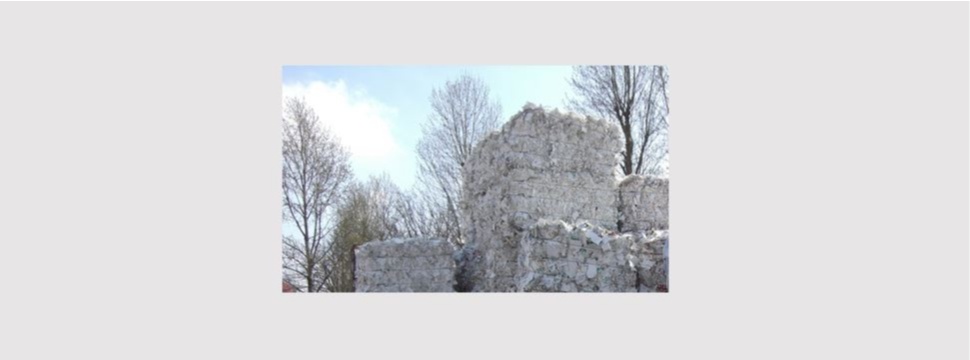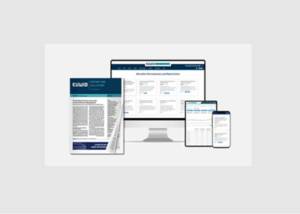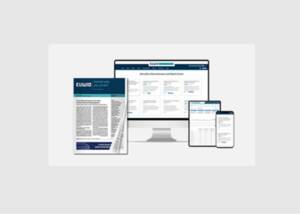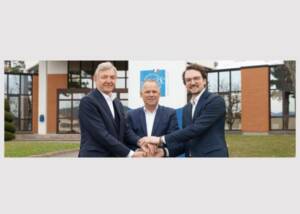bvse: Tapping new material flows to conserve resources in the paper industry
News General news
The BMWK-funded EnEWA research project increases resource efficiency in the paper industry by tapping new sources of raw materials and optimising the preparation process.

Paper is a sustainable product based on renewable raw materials. In particular, the production of recycled paper based on recovered paper already successfully and efficiently uses the established recyclable material cycles and is a pioneer of the circular economy in many respects. A recycling rate of packaging paper of over 80 % is clear evidence of this. Nevertheless, there is also potential for optimisation in the production and recycling process of recycled paper. There is potential, for example, in the area of energy efficiency, the increased use of renewable energies, the expansion of closed water cycles and, associated with this, in the reduction of CO2 emissions. In Germany, paper production causes annual CO2 emissions of 10.6 million tonnes, which is equivalent to the emissions of about 4.5 million cars. A large part of the demand as well as the emissions are caused by the production of virgin fibre paper and can be noticeably reduced by increasing the waste paper quota, which according to the Association of German Paper Producers is more than 66%.
In order to sustainably improve the environmental balance of paper production, the EnEWA research project (energy saving in paper production by opening up the value chains of recovered paper from light packaging, residual waste and commercial waste) is pursuing the approach of opening up new sources for environmentally friendly recovered paper recycling and making them usable. To this end, the Chair of International Production Engineering and Management (IPEM) at the University of Siegen and the Institute for Anthropogenic Material Cycles (ANTS) at RWTH Aachen University are researching a solution together with the industrial partners Tomra Sorting GmbH, STADLER Anlagenbau GmbH and PROPAKMA GmbH as well as the paper producer LEIPA Group GmbH.
The central element of the research project is the investigation of the potential to (re)recover paper fibres from lightweight packaging composites for paper production. Already today, paper-based packaging has a significant share in the fresh food sector with an increasing trend. With a paper content of 95 % or more, this packaging may be fed directly into the waste paper cycle by consumers after use. However, composite solutions with less than 95% paper content are unfortunately lost to the cycle in Germany. However, the possibility of recovering the fibres from this lightweight packaging would contribute to increased acceptance among producers and consumers - and thus to the increased use of these environmentally friendly packaging solutions. Ultimately, this would increase the amount of recycled fibres available through a further material flow for the benefit of the environment, people and the circular economy. In addition, the utilisation of paper that is disposed of incorrectly, especially in private households - so-called misdirected waste - is being examined in order to process it into new recycled paper.
In the course of this, the project participants deal with the different phases of waste paper collection, recovery and processing. After an analysis of the types of waste paper and waste paper composites to be recovered as well as their quality within the scope of material flow analyses, the necessary sorting technology is developed and adapted in the second project phase.
The waste paper and paper composites obtained in the sorting process go through both regular and special treatment processes in waste paper recycling to obtain paper fibres, which are expanded in the project by additional hygienisation - to avoid microbiological contamination. Finally, the paper quality is checked by LEIPA Group GmbH to ensure that the high paper quality achieved so far is maintained.
"We assume that about 30 % of the misthrows could be reused," explains Philipp Nettesheim, group leader at the IPEM Chair. Thus, by recycling the recovered waste paper, the total annual CO2 emissions of the German paper industry can be reduced by 2.5 %. In the course of this, the BMWK accepted our application within the 7th Energy Research Programme "Innovations for the Energy Turnaround" with the support of EurA AG and decided to fund the project.
(Source: EurA AG)










